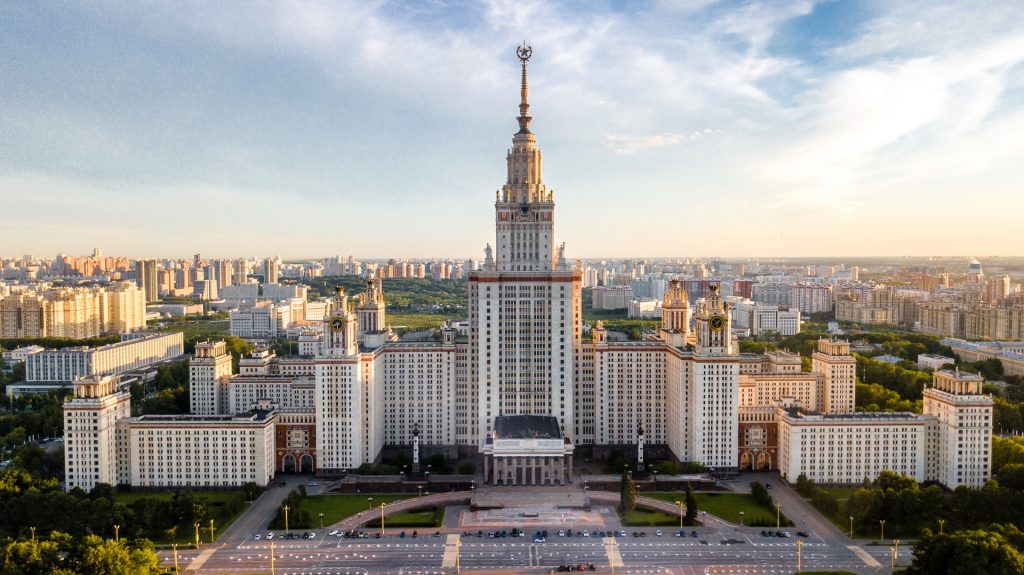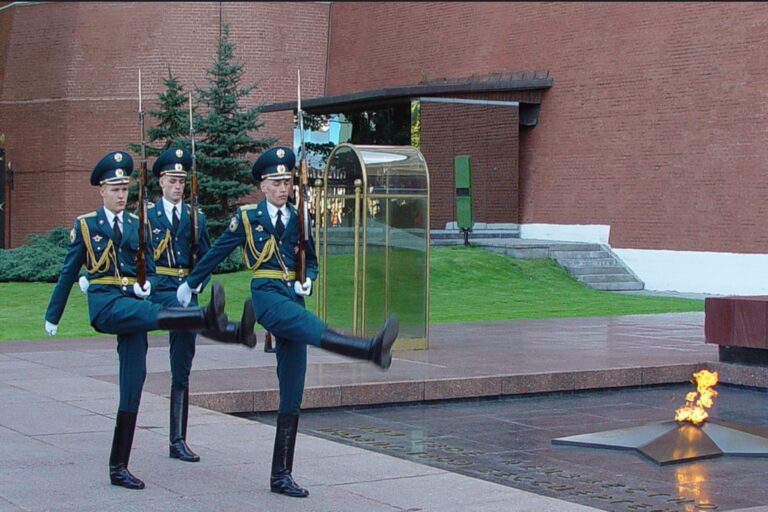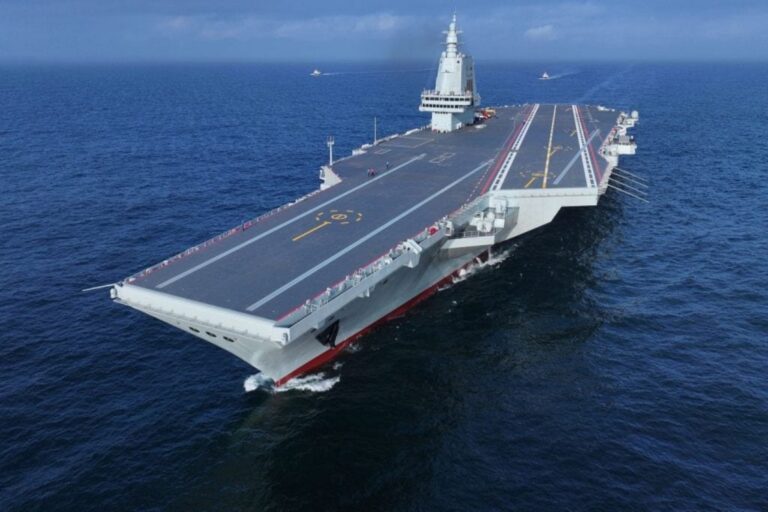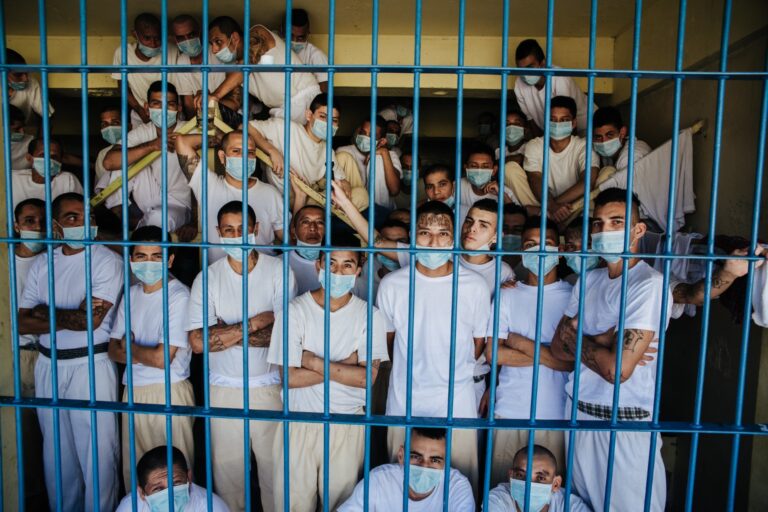Is Russia resurgent? Some Kremlinologists would respond “yes” after its saber-rattling over Ukraine, transnational cyberattacks, and nuclear weapon modernizations over the past few years. In January, former US Ambassador to Russia Michael McFaul wrote in Foreign Affairs that U.S. citizens “wrongly assume” Russia is a declining power and that we should “contain” it because it “has more military, cyber, economic, and ideological might than most Americans appreciate.”1 But a closer look at Russian power is needed. Because economics is, in fact, the chief determinant of state power in the modern era, Russia’s severely weak economy has made the fierce bear look like a paper tiger. As Russia is not resurgent, US strategy to counter its aggression should focus on reasserting the US’s trade ties and leadership role in the global economic order—areas where Washington has distinct advantages over Moscow.
Less Wealth, Fewer Jobs, Fewer People
From political scientist John Mearsheimer’s perspective, wealth, military resources, and demographics are the most reliable determinants of great-power status.2 Like a three-legged end table, great power cannot exist without each one propping it up. Yet among the three, economics most often decides winners and losers in the modern era. Take, for example, China. GDP growth and a total increase in multinational banks after Deng Xiaoping’s 1979 reforms blazed its path to become the superpower it is today.3 Yet for decades before Deng’s policy shifts, Beijing still projected military power into Greater Asia and boasted a population in excess of one billion.
With so much hinging on economics, Russia is fast-becoming one of the aforesaid losers. COVID-19 has battered the economy, which contracted by three percent last year.4 Compared to the Chinese economy, which had seven-percent growth in 2020,5 the economy’s lack of resilience amidst falling oil prices and decades of protectionism and low worker productivity portend Moscow leading a difficult recovery.6,7,8 Economic protectionism has also worsened inequality between wealthy state-owned enterprises and everyone else.9 As a direct result, household consumption fell by close to nine percent in 2020, three times more than in the United States.10,11 Meanwhile, jobs are scarce, high-skilled jobs even scarcer.
Russia is running out of qualified people to fill them too, putting downward pressure on economic growth. The working-age share of the population—another leg of the “end table”—will dwindle from 66 percent to 63 percent during the next decade because of plunging birthrates, compared to an only two-percentage point decrease in the United States.12 Large-scale, high-skilled worker migration from the near abroad would help manage the problem, but it is an unlikely prospect and politically unpalatable for President Vladimir Putin. Among ethnic Russians, anti-migrant hostility and distrust of the West have reached a fever pitch.13 Moreover, Central Asia and Eastern Europe have only so many skilled laborers. Eurasian Economic Union (EEU) member-states are unmoved by Putin’s diplomatic overtures to expand trade ties.14
To be sure, Russia is nowhere near economic collapse or another pugachevshchina—the tsarist era’s most dangerous peasant uprising. Living standards and life expectancy rose steadily for the past two decades. The early 2000s economic resurgence during Putin’s first presidential term, as Russian journalist Fyodor Lukyanov observes, marked the country’s expanding international influence, enabling Russia to resist Western attempts to reshape the rules-based international order.15 But Russian economic influence has ebbed and flowed ever since the 2008 global financial crisis, and has taken a dive more recently. From 1999 to 2008, for example, its per capita GDP climbed from under $2,000 to $12,460.16 After a brief, post-global recession recovery, it peaked at around $16,000 in 2013, but has since fallen back to around $10,000 today.17 The numbers don’t lie: Today’s Russia lacks the economic dynamism it once had. Its ability to influence world affairs or contest US supremacy as a great power has waned accordingly.
From Containment to Sustainment
Contrary to Ambassador McFaul’s proposal, containment is a policy better-designed for confronting rising powers, such as the Soviet Union or China, and not modern Russia—a declining one—because it prevents ideological spread as the great power grows in stature. For one, it is overaggressive and unnecessary. As John Quincy Adams once quipped, the United States does not go “abroad in search of monsters to destroy.” Poor prospects for attracting talent from abroad and Putin-style economic nationalism are self-imposed constraints on Russian power. Left to their own devices, they will weaken Russia’s influence abroad anyway. The monster is destroying itself, and there is no need to poke or prod it.
For another, containment is inimical to US interests. By containing Russia, Washington would squander critical resources that it could otherwise use to forestall China’s rise. Meanwhile, it would gift authoritarian Moscow with the legitimacy and attention that it craves, but no longer deserves. Princeton scholar Stephen Kotkin reached a similar conclusion five years ago, warning that a “new containment could become a trap, re-elevating Russia to the status of rival superpower, Russia’s quest for which has helped bring about the current confrontation.”18
At the time of writing, the Biden Administration has sanctioned Russia over its repeated cyberattacks against the United States.19 To be sure, President Biden’s sanctions on Russia will bite and could dissuade further aggression. More likely, however, they will start a tit-for-tat cycle of response and counterresponse between Washington and Moscow, risking blowbacks that run counter to US interests.
Instead of containment, President Biden should set forth a grand strategy aimed at sustaining and ensuring Russia’s relative decline through US soft economic power, and strive to use coercive diplomacy, such as sanctions, only as a last resort. President Biden should renegotiate the Obama-era Transatlantic Trade and Investment Partnership (TTIP). Abandoned by the Trump Administration in 2018, the TTIP would have brokered important free-trade deals with 28 EU countries. The TTIP would therefore strengthen US prosperity, create jobs on both sides of the Atlantic, and diminish Russia’s global prestige because of how the TTIP tightens the partnership between the United States and Eastern European countries, including the Baltic States.
For another part, President Biden should promote US influence in Russia’s backyard. With Moscow unable to persuade the EEU to expand trade, a window of opportunity has opened for the US to accrue favor in Central Asia and the Caucasus. Before it closes, the Biden Administration should design targeted visa programs to welcome skilled workers from the EEU area. Historically, EEU economies have depended on the repatriation of migrant workers who left to work in Russia. To compensate for their loss, the United States should open up work-sharing agreements with EEU countries and others Russia’s near abroad, namely Kazakhstan, Kyrgyzstan, and Lithuania, which all have strong, cyber-skilled workforces.
The Biden Administration should also encourage EEU member-states to create new business ties with the United States based around the economic demands of their people. Kazakhs want more affordable housing.20 Kyrgyz want to build a stable, digital market economy.21 Seeking outside investment, they will break from Moscow’s iron grip eventually, but it depends on whether the United States is willing to forge strong investment and business ties with them. If so, it would give the United States a decisive advantage in the global contest for skilled economic migrants at Russia’s expense.
[1] Michael McFaul, “How to Contain Putin’s Russia,” Foreign Affairs (January 19, 2021), https://www.foreignaffairs.com/articles/ukraine/2021-01-19/how-contain-putins-russia
[2] John Mearsheimer, The Tragedy of Great-Power Politics (New York: W.W. Norton, 2014), 55.
[3] Lili Chen. “An Overview of the Chinese Banking System: Its History, Challenges, and Risks.” Journal of Business and Economics (October 2016), Volume 7, No. 10. www.academicstar.us/UploadFile/Picture/2017-7/2017728213195.pdf
[4] “Russia Economy, Politics and GDP Growth Summary,” The Economist Intelligence Unit (2021), http://country.eiu.com.proxy1.library.jhu.edu/russia
[5] Jonathan Cheng, “China Is the Only Major Economy to Report Economic Growth for 2020,” Wall Street Journal (January 18, 2021), https://www.wsj.com/articles/china-is-the-only-major-economy-to-report-economic-growth-for-2020-11610936187
[6] “Not Just Navalny: Economic Woes Also Drive Russians to Protest,” Al Jazeera (February, 1 2021), https://www.aljazeera.com/economy/2021/2/1/not-just-navalny-russians-also-protest-economic-pain
[7] N. A. Akindinova et al., “The Prospects of Russian Economic Growth Recovery (Proceedings of the Roundtable Discussion at the XXI April International Academic Conference on Economic and Social Development),” Voprosy Ékonomiki, no. 7 (2020): 5.
[8] “Despite Long Hours, Russians Named Among World’s Least Productive Workers,” The Moscow Times (July 5, 2018), https://www.themoscowtimes.com/2018/07/05/despite-long-hours-russians-least-productive-a62123
[9] “Russia Records Comparatively Mild Contraction in 2020,” Economist Intelligence Unit (February 5, 2021), http://country.eiu.com.proxy1.library.jhu.edu/article.aspx?articleid=820689265&Country=Russia&topic=Economy&subtopic=Forecast&subsubtopic=Economic+growth
[10] “Russia Economy, Politics and GDP Growth Summary,” The Economist Intelligence Unit (2021), http://country.eiu.com.proxy1.library.jhu.edu/russia
[11] “What the US GDP Data Tell Us about 2020,” PIIE (January 27, 2021), https://www.piie.com/blogs/realtime-economic-issues-watch/what-us-gdp-data-tell-us-about-2020
[12] World Population Database, United Nations World Population Prospects (2020), https://population.un.org/wpp/DataQuery/
[13] Ben Judah, “Russia’s Migration Crisis,” Survival 55, no. 6 (December 1, 2013): 125, https://doi.org/10.1080/00396338.2013.862940
[14] “Putin Contends with a Neighbourhood in Turmoil,” Financial Times (October 11, 2020), https://www.ft.com/content/30c92229-6df1-4977-8fd1-bfbb03fb605f
[15] Fyodor Lukyanov, “The Quest to Restore Russia’s Rightful Place,” Foreign Affairs (May 2016). https://www.foreignaffairs.com/articles/russia-fsu/2016-04-18/putins-foreign-policy
[16] “Russian Federation and the IMF Data – Per Capita GDP,” International Monetary Fund, accessed April 6, 2021, https://www.imf.org/en/Countries/RUS.
[17]“Russian Federation,” IMF, 2021.
[18] Stephen Kotkin, “Russia’s Perpetual Geopolitics,” Foreign Affairs (August 19, 2019), https://www.foreignaffairs.com/articles/ukraine/2016-04-18/russias-perpetual-geopolitics
[19] Tom Arnold, Sujata Rao, Marc Jones. “Analysis: No knockout, but new U.S. sanctions add to Russia’s ‘slow destruction’”, Reuters (April 19, 2021). https://www.reuters.com/business/no-knockout-new-us-sanctions-add-russias-slow-destruction-2021-04-16
[20] Andrey Dovgolenko, “Affordable Housing Among Top Priorities for Kazakh Government,” The Astana Times, (April 2, 2021), https://astanatimes.com/2021/04/affordable-housing-among-top-priorities-for-kazakh-government/.
[21] “Kyrgyzstan to License Digital Currency Exchanges to Protect Investors,” CoinGeek (February 17, 2021), https://coingeek.com/kyrgyzstan-to-license-digital-currency-exchanges-to-protect-investors/.




